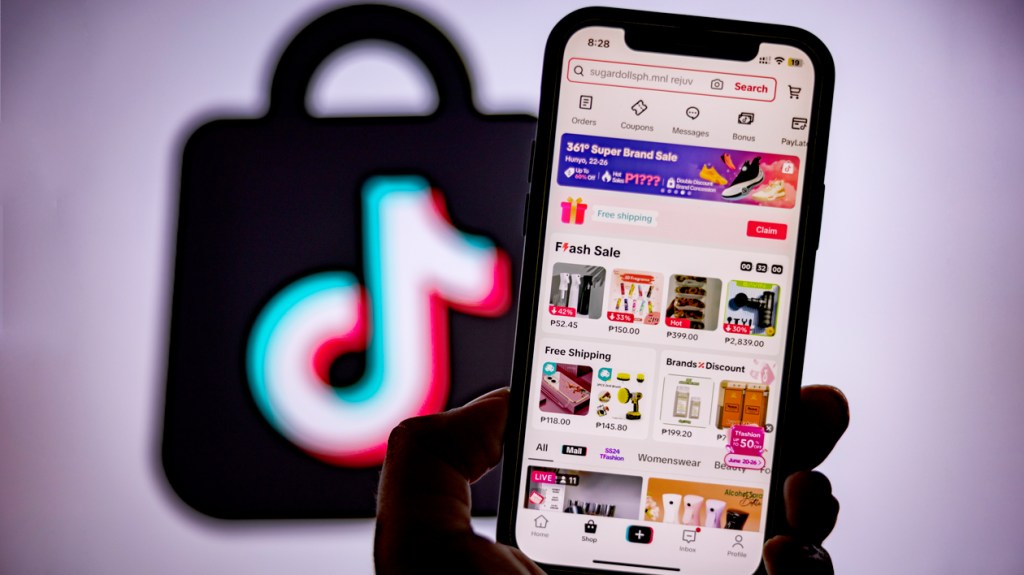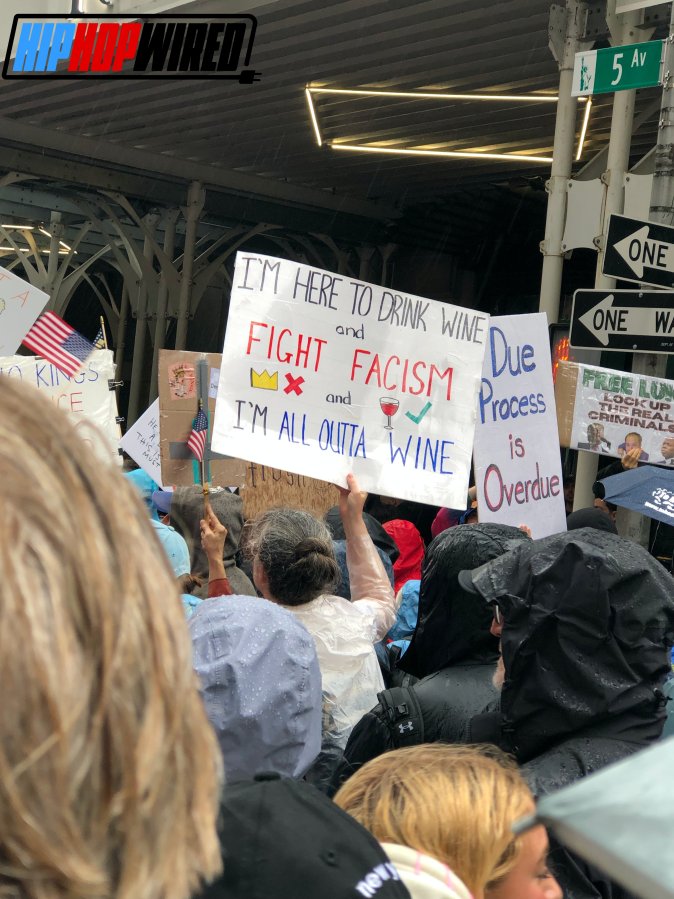politics
Page: 8
Zohran Mamdani is a 33-year-old Democratic Socialist looking to become the next mayor of New York City. As voters learn more about potential candidates, curious folks have dug up old rap videos from a previous life for Mamdani, who rhymed under the monikers Young Cardamom and then Mr. Cardamom.
Explore
Explore
See latest videos, charts and news
See latest videos, charts and news
According to a 2019 story about actress Madhur Jaffrey in The New York Times, Mamdani made his rap debut in the late 2000s while running for vice president at the Bronx High School of Science. He then partnered with his close friend Abdul Bar Hussein to form a rap duo in the mid-2010s.
They would release a six-track EP, titled Sidda Mukyaalo, in 2016, which finds them rapping in six different languages while paying homage to their Ugandan roots.
Trending on Billboard
Mamdani (Mr. Cardamom) wouldn’t hesitate to touch on politically charged topics in his rhymes and dealt with racism. “When it’s a Black friend or family member, it always takes a bit longer,” he raps on “Askari,” which finds him playing a security guard opening a gate quicker for a white person.
One of the more recent tracks that has gone viral is his 2019 “Nani” video, a tribute to his grandmother, Praveen Nair, who worked for the nonprofit Salaam Baalak Trust. The visual, which stars Jaffrey and even received coverage from The New York Times, has more than 213,000 views on YouTube. It’s the only clip left on his official YouTube account as Mr. Cardamom.
Supporters hopped into the clip’s comments section, saying Mamdani has their vote and they’re convinced he needs to be the next mayor of NYC.
“He’s got my vote, just cause I don’t want smoke with nani,” one person wrote, while a second added, “I don’t even live in NY but please. Please, y’all gotta make him mayor, if only for this banger.”
Another chimed in: “I swear to god Zohran completed every damn sidequest out there lmao.”
The NYC mayoral race continues to heat up in its final days of the primary, with Mamdani closing the gap on former NY Gov. Andrew Cuomo among Democrats in the polls. A recent survey from the Marist Institute for Public Opinion found that 38 percent of voters said they’d rank Cuomo at the top of their ballots, compared to 27 percent for Mamdani.
President Donald Trump is set to sign an executive order this week extending the deadline for TikTok’s Chinese parent company to divest the popular video-sharing app, marking the third such extension. The move comes after a previous 75-day reprieve granted in April, which aimed to keep TikTok operational in the U.S. while a potential sale […]

Johnny Marr is standing behind Kneecap, even as some are calling for the Irish band to be censored at Glastonbury in light of their past politically charged concerts and recent legal trouble. In a statement posted to Instagram on Monday (June 16), the former Smiths guitarist wrote that he feels it’s important to make his […]
Source: X / Fox News
It’s unclear whether former defense intelligence agency officer Rebekah Koffler was intoxicated or if she was having a medical emergency but either way, Fox News cut the interview short after Koffler went on an incoherent rant about Donald Trump and his lame military parade to celebrate the Army’s 250th anniversary.
“I’m so excited, Emily and Lucas Tomlinson,” Koffler, who seemed to slurring her words, said to Fox News anchors Emily Compagno and Lawrence Jones. “Everybody, like this is incredible! Finally, the United States is back! I want to really thank all of our army, navy and air force officers who’ve been sacrificing their lives, literally. Their families have been contributing to the mission,” she said after misidentifying the Fox and Friends host, Variety reports.
She continued, “With our new Commander in Chief, Donald J. Trump, they are prioritizing America first. And I want to thank these officers for all of their sacrifices and all of the hardships that their families have endured. Lawrence Jones, you’re doing….you’re rocking man!”
Koffler tried to continue, but Jones and Compagno cut all of that short about a minute and a half into her disaster of an appearance and quickly went to a commercial break.
Koffler claimed that she wasn’t drunk despite posting a photo of champagne on her social media and noting that she planned on refilling her glass before her live appearance on Fox News.
After social media began clowning Koffler’s unbalanced, slurring, nonsensical rant that was live on TV, the totally not drunk Koffler took to social media to defend her totally not drunk appearance as fake news.
Because God loves us more than we will ever know, Trump’s Army anniversary parade just so happened to be on the same day as the “No Kings” protests, a nationwide protest against the president and his racist deportation raids.
His showcase of America’s weaponry was a huge flop, but at least we have Koffler’s totally not drunk appearance on Fox News.
Watch below:
HipHopWired Featured Video
When Lizzo sang, “Turn up the music, let’s celebrate,” Donald Trump‘s widely protested military birthday parade was not what she had in mind. After video of a performer singing Lizzo’s Billboard Hot 100-topping hit “About Damn Time” at the event in Washington, D.C., on Saturday (June 14) surfaced online, the hitmaker made her feelings quite […]
Source: O / Hip-Hop Wired
This past Saturday (June 14), millions of American citizens from coast to coast took to the streets for the No Kings protest to remind Donald Trump that we the people don’t do kings, dictators, or authoritarians on U.S. soil.
The much hyped protest took place on the same day that Donald Trump threw himself a birthday military “parade” as his birthday coincided with the 250th anniversary of the U.S. Army being born. While Trump’s little vanity parade flopped big time with only a few thousand MAGA loyalists attending the D.C.debacle, more than 11 million Americans marched on the streets from New York to Los Angeles in a show of unity amongst Americans who’ve had enough of Donald Trump’s administration kidnapping and disappearing Latino and Black immigrants into foreign prisons, curbing Supreme Court orders, and running roughshod over the constitution.
The man is selling green cards for $5 million for Christ’s sake.
With growing worry that Donald Trump is itching for civil unrest in order to justify enacting the Insurrection Act and declaring Martial Law, the protests that took place across the 50 states (and in other countries as well) were peaceful, joyful and loud as everyone knew the assignment and carried it out to a T. People of all ages, races, and religions gathered from city to city to show the world that they are not okay with what Donald Trump is doing and will continue to resist this regime’s efforts to weaken and take away our democratic rights.
People protesting refrained from any violence, looting or destruction of private property, but did hold up all kinds of signs mocking the adjudicated rapist and partook in various chants denouncing the current administration as people are refusing to go silently into the night were fascism lies.
Meanwhile in Washington, Trump’s military parade was so pathetic that even Russia couldn’t help but clown Donald Trump for his struggle spectacle.
You know it’s bad when even Trump’s biggest “ally” is publicly mocking him for his pitiful procession.
Predictably, Donald Trump didn’t take criticism of his “parade” too well and on Sunday (June 15) declared that he would be instructing ICE to hit cities like New York and Los Angeles (again) hard and carry out new operations to deport as many immigrants as possible.
Again, the man is itching for a reason to declare Martial Law. Do not give him one.
What are your thoughts on people protesting Donald Trump’s authoritarian regime? Let us know in the comments section below. Peep some of the photos we took in NYC in the gallery.
1. No Kings x NYC
Source:Hip-Hop Wired
No Kings x NYC no kings x nyc
2. No Kings x NYC
Source:Hip-Hop Wired
No Kings x NYC no kings x nyc
3. No Kings x NYC
Source:Hip-Hop Wired
No Kings x NYC no kings x nyc
4. No Kings x NYC
Source:Hip-Hop Wired
No Kings x NYC no kings x nyc
5. No Kings x NYC
Source:Hip-Hop Wired
No Kings x NYC no kings x nyc
6. No Kings x NYC
Source:Hip-Hop Wired
No Kings x NYC no kings x nyc
7. No Kings x NYC
Source:Hip-Hop Wired
No Kings x NYC no kings x nyc
8. No Kings x NYC
Source:Hip-Hop Wired
No Kings x NYC no kings x nyc
HipHopWired Featured Video
CLOSE
Source: O / Hip-Hop Wired
This past Saturday (June 14), millions of American citizens from coast to coast took to the streets for the No Kings protest to remind Donald Trump that we the people don’t do kings, dictators, or authoritarians on U.S. soil.
The much hyped protest took place on the same day that Donald Trump threw himself a birthday military “parade” as his birthday coincided with the 250th anniversary of the U.S. Army being born. While Trump’s little vanity parade flopped big time with only a few thousand MAGA loyalists attending the D.C.debacle, more than 11 million Americans marched on the streets from New York to Los Angeles in a show of unity amongst Americans who’ve had enough of Donald Trump’s administration kidnapping and disappearing Latino and Black immigrants into foreign prisons, curbing Supreme Court orders, and running roughshod over the constitution.
The man is selling green cards for $5 million for Christ’s sake.
With growing worry that Donald Trump is itching for civil unrest in order to justify enacting the Insurrection Act and declaring Martial Law, the protests that took place across the 50 states (and in other countries as well) were peaceful, joyful and loud as everyone knew the assignment and carried it out to a T. People of all ages, races, and religions gathered from city to city to show the world that they are not okay with what Donald Trump is doing and will continue to resist this regime’s efforts to weaken and take away our democratic rights.
People protesting refrained from any violence, looting or destruction of private property, but did hold up all kinds of signs mocking the adjudicated rapist and partook in various chants denouncing the current administration as people are refusing to go silently into the night were fascism lies.
Meanwhile in Washington, Trump’s military parade was so pathetic that even Russia couldn’t help but clown Donald Trump for his struggle spectacle.
You know it’s bad when even Trump’s biggest “ally” is publicly mocking him for his pitiful procession.
Predictably, Donald Trump didn’t take criticism of his “parade” too well and on Sunday (June 15) declared that he would be instructing ICE to hit cities like New York and Los Angeles (again) hard and carry out new operations to deport as many immigrants as possible.
Again, the man is itching for a reason to declare Martial Law. Do not give him one.
What are your thoughts on people protesting Donald Trump’s authoritarian regime? Let us know in the comments section below. Peep some of the photos we took in NYC in the gallery.
1. No Kings x NYC
Source:Hip-Hop Wired
No Kings x NYC no kings x nyc
2. No Kings x NYC
Source:Hip-Hop Wired
No Kings x NYC no kings x nyc
3. No Kings x NYC
Source:Hip-Hop Wired
No Kings x NYC no kings x nyc
4. No Kings x NYC
Source:Hip-Hop Wired
No Kings x NYC no kings x nyc
5. No Kings x NYC
Source:Hip-Hop Wired
No Kings x NYC no kings x nyc
6. No Kings x NYC
Source:Hip-Hop Wired
No Kings x NYC no kings x nyc
7. No Kings x NYC
Source:Hip-Hop Wired
No Kings x NYC no kings x nyc
8. No Kings x NYC
Source:Hip-Hop Wired
No Kings x NYC no kings x nyc
HipHopWired Featured Video
CLOSE
Source: O / Hip-Hop Wired
This past Saturday (June 14), millions of American citizens from coast to coast took to the streets for the No Kings protest to remind Donald Trump that we the people don’t do kings, dictators, or authoritarians on U.S. soil.
The much hyped protest took place on the same day that Donald Trump threw himself a birthday military “parade” as his birthday coincided with the 250th anniversary of the U.S. Army being born. While Trump’s little vanity parade flopped big time with only a few thousand MAGA loyalists attending the D.C.debacle, more than 11 million Americans marched on the streets from New York to Los Angeles in a show of unity amongst Americans who’ve had enough of Donald Trump’s administration kidnapping and disappearing Latino and Black immigrants into foreign prisons, curbing Supreme Court orders, and running roughshod over the constitution.
The man is selling green cards for $5 million for Christ’s sake.
With growing worry that Donald Trump is itching for civil unrest in order to justify enacting the Insurrection Act and declaring Martial Law, the protests that took place across the 50 states (and in other countries as well) were peaceful, joyful and loud as everyone knew the assignment and carried it out to a T. People of all ages, races, and religions gathered from city to city to show the world that they are not okay with what Donald Trump is doing and will continue to resist this regime’s efforts to weaken and take away our democratic rights.
People protesting refrained from any violence, looting or destruction of private property, but did hold up all kinds of signs mocking the adjudicated rapist and partook in various chants denouncing the current administration as people are refusing to go silently into the night were fascism lies.
Meanwhile in Washington, Trump’s military parade was so pathetic that even Russia couldn’t help but clown Donald Trump for his struggle spectacle.
You know it’s bad when even Trump’s biggest “ally” is publicly mocking him for his pitiful procession.
Predictably, Donald Trump didn’t take criticism of his “parade” too well and on Sunday (June 15) declared that he would be instructing ICE to hit cities like New York and Los Angeles (again) hard and carry out new operations to deport as many immigrants as possible.
Again, the man is itching for a reason to declare Martial Law. Do not give him one.
What are your thoughts on people protesting Donald Trump’s authoritarian regime? Let us know in the comments section below. Peep some of the photos we took in NYC in the gallery.
1. No Kings x NYC
Source:Hip-Hop Wired
No Kings x NYC no kings x nyc
2. No Kings x NYC
Source:Hip-Hop Wired
No Kings x NYC no kings x nyc
3. No Kings x NYC
Source:Hip-Hop Wired
No Kings x NYC no kings x nyc
4. No Kings x NYC
Source:Hip-Hop Wired
No Kings x NYC no kings x nyc
5. No Kings x NYC
Source:Hip-Hop Wired
No Kings x NYC no kings x nyc
6. No Kings x NYC
Source:Hip-Hop Wired
No Kings x NYC no kings x nyc
7. No Kings x NYC
Source:Hip-Hop Wired
No Kings x NYC no kings x nyc
8. No Kings x NYC
Source:Hip-Hop Wired
No Kings x NYC no kings x nyc
HipHopWired Featured Video
CLOSE
Source: O / Hip-Hop Wired
This past Saturday (June 14), millions of American citizens from coast to coast took to the streets for the No Kings protest to remind Donald Trump that we the people don’t do kings, dictators, or authoritarians on U.S. soil.
The much hyped protest took place on the same day that Donald Trump threw himself a birthday military “parade” as his birthday coincided with the 250th anniversary of the U.S. Army being born. While Trump’s little vanity parade flopped big time with only a few thousand MAGA loyalists attending the D.C.debacle, more than 11 million Americans marched on the streets from New York to Los Angeles in a show of unity amongst Americans who’ve had enough of Donald Trump’s administration kidnapping and disappearing Latino and Black immigrants into foreign prisons, curbing Supreme Court orders, and running roughshod over the constitution.
The man is selling green cards for $5 million for Christ’s sake.
With growing worry that Donald Trump is itching for civil unrest in order to justify enacting the Insurrection Act and declaring Martial Law, the protests that took place across the 50 states (and in other countries as well) were peaceful, joyful and loud as everyone knew the assignment and carried it out to a T. People of all ages, races, and religions gathered from city to city to show the world that they are not okay with what Donald Trump is doing and will continue to resist this regime’s efforts to weaken and take away our democratic rights.
People protesting refrained from any violence, looting or destruction of private property, but did hold up all kinds of signs mocking the adjudicated rapist and partook in various chants denouncing the current administration as people are refusing to go silently into the night were fascism lies.
Meanwhile in Washington, Trump’s military parade was so pathetic that even Russia couldn’t help but clown Donald Trump for his struggle spectacle.
You know it’s bad when even Trump’s biggest “ally” is publicly mocking him for his pitiful procession.
Predictably, Donald Trump didn’t take criticism of his “parade” too well and on Sunday (June 15) declared that he would be instructing ICE to hit cities like New York and Los Angeles (again) hard and carry out new operations to deport as many immigrants as possible.
Again, the man is itching for a reason to declare Martial Law. Do not give him one.
What are your thoughts on people protesting Donald Trump’s authoritarian regime? Let us know in the comments section below. Peep some of the photos we took in NYC in the gallery.
1. No Kings x NYC
Source:Hip-Hop Wired
No Kings x NYC no kings x nyc
2. No Kings x NYC
Source:Hip-Hop Wired
No Kings x NYC no kings x nyc
3. No Kings x NYC
Source:Hip-Hop Wired
No Kings x NYC no kings x nyc
4. No Kings x NYC
Source:Hip-Hop Wired
No Kings x NYC no kings x nyc
5. No Kings x NYC
Source:Hip-Hop Wired
No Kings x NYC no kings x nyc
6. No Kings x NYC
Source:Hip-Hop Wired
No Kings x NYC no kings x nyc
7. No Kings x NYC
Source:Hip-Hop Wired
No Kings x NYC no kings x nyc
8. No Kings x NYC
Source:Hip-Hop Wired
No Kings x NYC no kings x nyc
HipHopWired Featured Video
CLOSE
Source: O / Hip-Hop Wired
This past Saturday (June 14), millions of American citizens from coast to coast took to the streets for the No Kings protest to remind Donald Trump that we the people don’t do kings, dictators, or authoritarians on U.S. soil.
The much hyped protest took place on the same day that Donald Trump threw himself a birthday military “parade” as his birthday coincided with the 250th anniversary of the U.S. Army being born. While Trump’s little vanity parade flopped big time with only a few thousand MAGA loyalists attending the D.C.debacle, more than 11 million Americans marched on the streets from New York to Los Angeles in a show of unity amongst Americans who’ve had enough of Donald Trump’s administration kidnapping and disappearing Latino and Black immigrants into foreign prisons, curbing Supreme Court orders, and running roughshod over the constitution.
The man is selling green cards for $5 million for Christ’s sake.
With growing worry that Donald Trump is itching for civil unrest in order to justify enacting the Insurrection Act and declaring Martial Law, the protests that took place across the 50 states (and in other countries as well) were peaceful, joyful and loud as everyone knew the assignment and carried it out to a T. People of all ages, races, and religions gathered from city to city to show the world that they are not okay with what Donald Trump is doing and will continue to resist this regime’s efforts to weaken and take away our democratic rights.
People protesting refrained from any violence, looting or destruction of private property, but did hold up all kinds of signs mocking the adjudicated rapist and partook in various chants denouncing the current administration as people are refusing to go silently into the night were fascism lies.
Meanwhile in Washington, Trump’s military parade was so pathetic that even Russia couldn’t help but clown Donald Trump for his struggle spectacle.
You know it’s bad when even Trump’s biggest “ally” is publicly mocking him for his pitiful procession.
Predictably, Donald Trump didn’t take criticism of his “parade” too well and on Sunday (June 15) declared that he would be instructing ICE to hit cities like New York and Los Angeles (again) hard and carry out new operations to deport as many immigrants as possible.
Again, the man is itching for a reason to declare Martial Law. Do not give him one.
What are your thoughts on people protesting Donald Trump’s authoritarian regime? Let us know in the comments section below. Peep some of the photos we took in NYC in the gallery.
1. No Kings x NYC
Source:Hip-Hop Wired
No Kings x NYC no kings x nyc
2. No Kings x NYC
Source:Hip-Hop Wired
No Kings x NYC no kings x nyc
3. No Kings x NYC
Source:Hip-Hop Wired
No Kings x NYC no kings x nyc
4. No Kings x NYC
Source:Hip-Hop Wired
No Kings x NYC no kings x nyc
5. No Kings x NYC
Source:Hip-Hop Wired
No Kings x NYC no kings x nyc
6. No Kings x NYC
Source:Hip-Hop Wired
No Kings x NYC no kings x nyc
7. No Kings x NYC
Source:Hip-Hop Wired
No Kings x NYC no kings x nyc
8. No Kings x NYC
Source:Hip-Hop Wired
No Kings x NYC no kings x nyc
HipHopWired Featured Video
CLOSE

 State Champ Radio
State Champ Radio 








